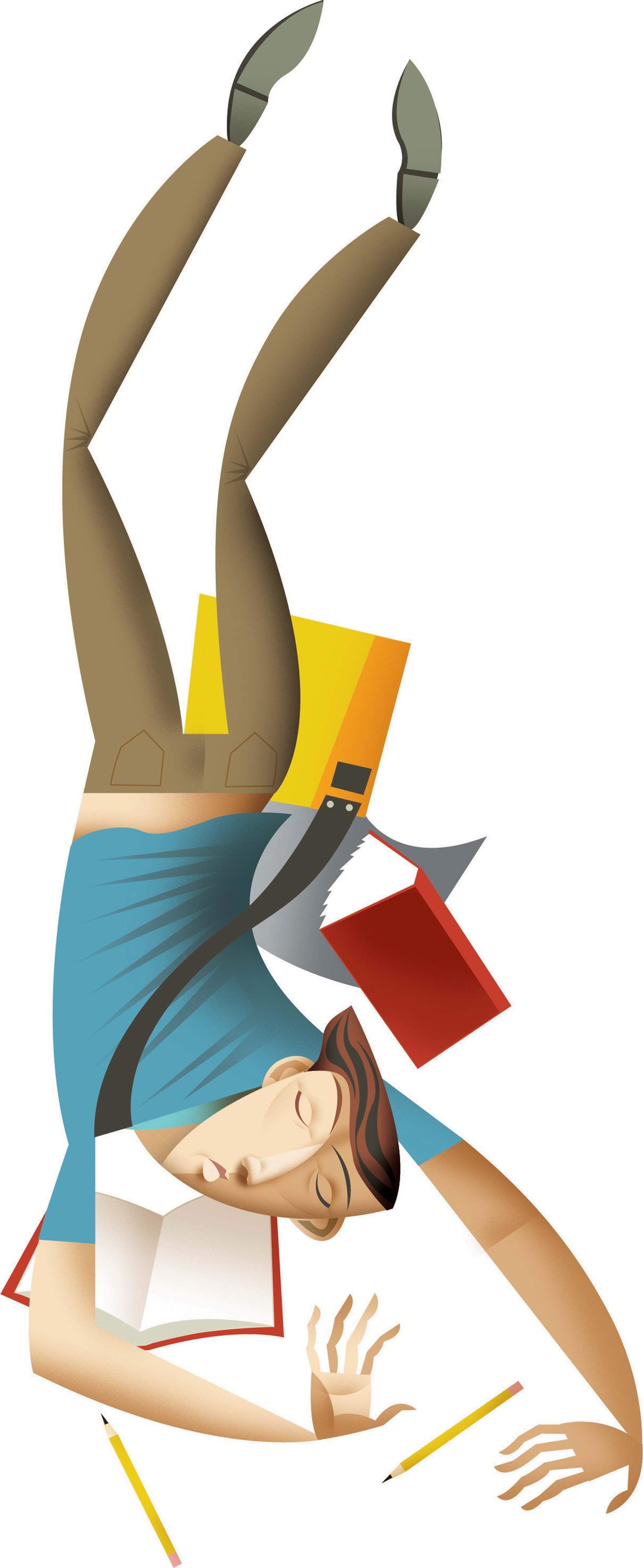Common Core standards put stress on students, teachers, parents
February 2, 2015

Editor’s note: PARCC and AIR will determine graduation since Ohio follows federal and state laws. Read more about the principles behind Common Core.
Common Core? More like Rotten Core.
The Common Core State Standards (CCSS) are a set of universal education standards used by 46 states in the US. Teachers and parents around the country are protesting the use of the CCSS because of the negative effects that the curriculum brings.
The CCSS brings stress to students and parents helping their children with homework. The way of solving a problem is so different than what parents learned when they were in school. This makes helping their children difficult because parents are worried that they are helping their child get a wrong answer instead of the right one.
English teacher Mia Bourdakos believes that the CCSS puts a lot of stress on the students as well as parents.
She said, “I do believe that [the Common Core] puts pressure on parents if they don’t understand what the Common Core is. I also think it definitely puts stress on students because it’s a big scary test at the end of the year and I don’t think it’s adequately measuring what the state intends to measure.”
The new method also focuses on how a student gets the answer instead of if they get the answer correct. This means that there is not diversity in the way of learning a topic. The state gives schools a set of standards, and if a child does not see the answer the way the state wants them to, the child does not master that topic in their eyes.
If mastery is so limited, how are students expected to succeed?
Critic of the Common Core Glenn Beck believes that the CCSS eliminates variety in learning. He said, “The adoption of a nationalized curriculum will eliminate diversity of thought and has the potential to create a propaganda machine that will have the potential to influence the thoughts of an entire generation.”
I don’t like the Common Core because of the super specific minor details that decide your fate on whether you get a problem right or wrong. This puts a lot of pressure on students because if they are taking a test and worrying about making sure that everything is perfect, they may not have enough time to finish.
In a NY Times article entitled “A Tough New Test Spurs Protests and Tears,” Javier C. Hernández and Al Baker arguethat the testing put in place with CCSS is too long. Hernández and Baker wrote, “Complaints were plentiful: the tests were too long; students were demoralized to the point of tears; teachers were not adequately prepared.”
Writers Robin Hiller and Anthony Cody from US News and World Report also believe that the CCSS education standards harm students and teachers. Hill and Cody wrote, “Rather than allow for the sort of imaginative ideas and critical thinking teachers need to inspire their students, the Common Core is a poison pill for learning.”
There is also an abundance of new testing that is also associated with the Common Core. These sets of new tests are called Next Generation Assessments.
After the class of 2017 finishes their sophomore year in high school, there will be no more Ohio Graduation Test. The new PAARC assessment will take its place.
The PAARC assessment is a set of tests that will determine whether a student will graduate or not. This test is expected to be based off of the Common Core and teachers will have to prepare for this test in a totally different way.
Nicholas Tampio, writer for CNN News, believes that the Common Core is highly angled at testing. He wrote, “Parents and students want schools that offer a well-rounded curriculum and a sensible amount and way of testing. But the Common Core seems to focus too much on testing.”
Sophomore Adam Kuchta also believes that these tests are putting stress on students. Kuchta said, “I do believe that the Common Core puts a large amount of stress on society because it is defining kids’ futures on a single piece of paper, which stifles the individuality of the strengths and weaknesses of each student.”
These tests are made in order to collect data, but put stress on students who have to take the assessments.
I believe that based on the use of the Common Core, the state wants the data of students in order to rise up on the world’s scale of education, instead of caring about the lives of today’s young people. And that’s a rotten shame.





















































